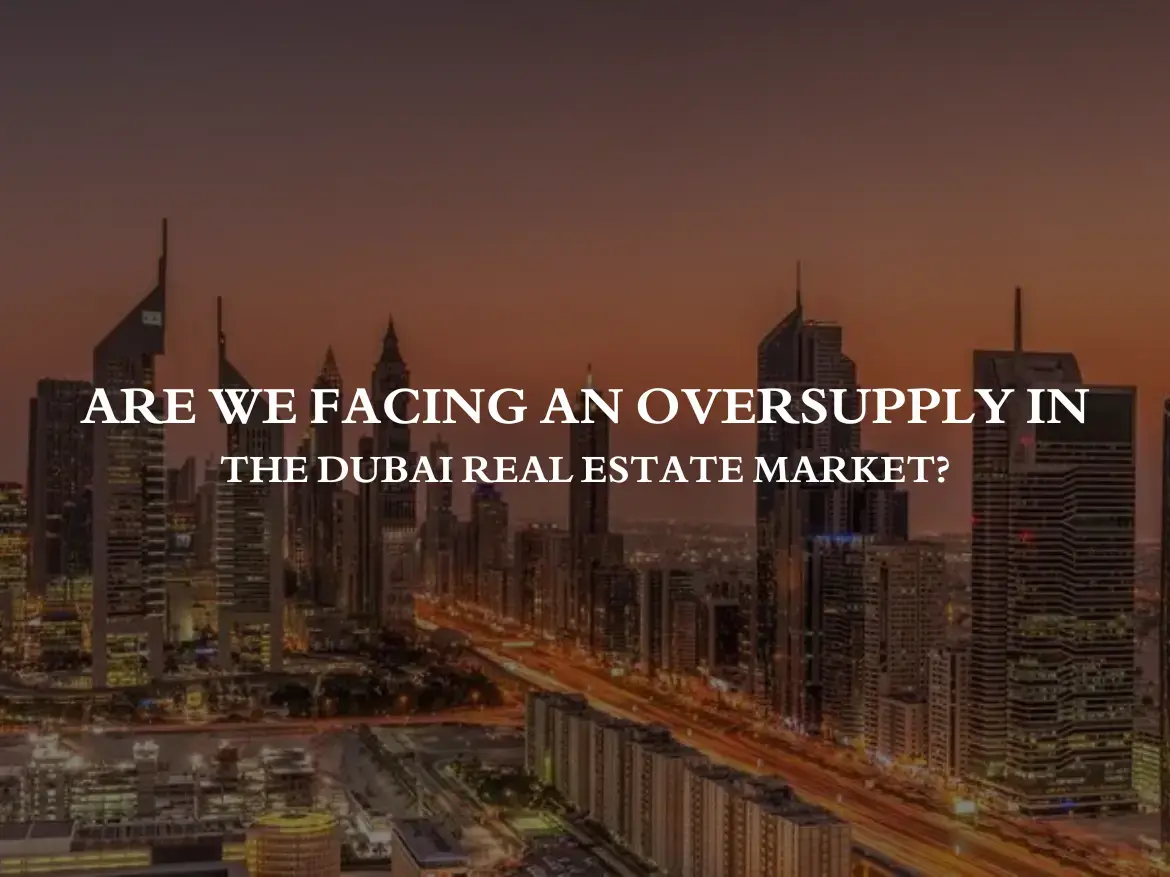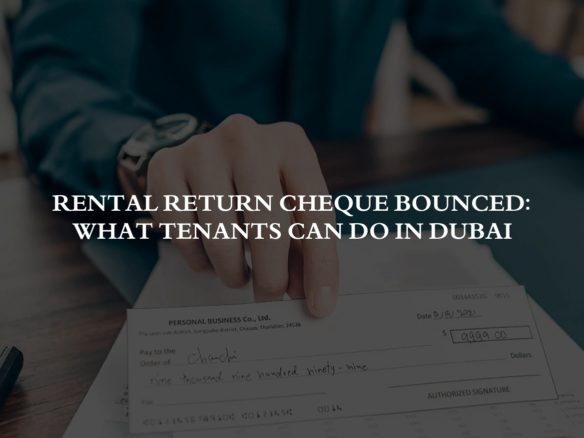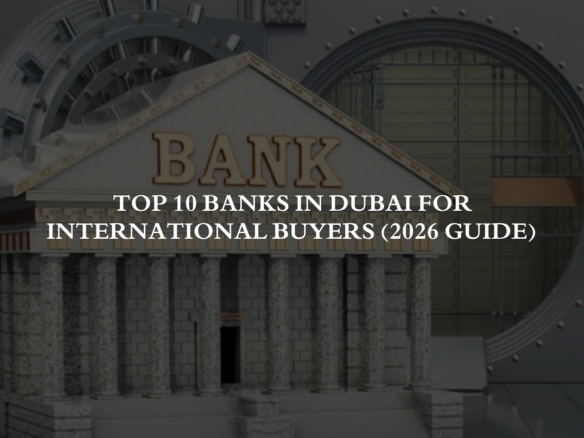Table of Contents
The Dubai Real Estate Oversupply has always been a topic of interest for investors, homebuyers, and industry experts. Recently, questions have arisen about whether the market is experiencing an oversupply. Are there too many townhouses, buildings, and villas available? Could this lead to a correction or slowdown in the market? Let’s delve into the numbers and logic to find out.
Historical Population Growth in Dubai
Population Growth from 1950 to 1980

To understand the current market dynamics, we need to look at Dubai’s population growth. In 1950, Dubai had approximately 20,000 residents. By 1960, this number increased to 34,000. By 1970, the population reached 73,000. In 1980, Dubai’s population grew to 254,000, a significant 10-fold increase from 1950.
Population Growth from 1980 to 2020

The growth continued at an exponential rate. By 1990, the population doubled to 508,000. In 2000, Dubai had 97,000 residents. By 2010, the population soared to 1.87 million. As of 2020, there were 2.87 million people living in Dubai, and by 2024, this number is expected to reach 3.51 million.
Understanding the Dubai Real Estate Oversupply & Demand
Annual Population Increase
On average, Dubai’s population has increased by about 45,000 people per year over the past 74 years. Even if only half of these new residents require housing, Dubai still needs to accommodate 20,000 new households annually.
Diverse Demographics
The population growth isn’t just driven by Emiratis. Dubai attracts a large number of expatriates who choose to live, work, and retire in the city. This diverse demographic makeup ensures a consistent demand for various types of housing.
Examining the Real Estate Supply
Current Supply of Townhouses, Buildings, and Villas
Dubai’s real estate market offers a wide range of housing options, including townhouses, buildings, and villas. The construction of new properties has been robust, aiming to meet the growing demand.
Potential Oversupply Risks
While the supply is abundant, concerns about oversupply persist. It’s crucial to analyze whether the number of new properties being developed aligns with the population growth and housing demand.
Economic Factors Influencing the Market
Investment and Tourism
Dubai’s economy heavily relies on investment and tourism. These sectors contribute significantly to the demand for real estate, as investors and tourists often look for properties to buy or rent.
Government Policies
Government policies and initiatives also play a crucial role in shaping the real estate market. Measures to attract foreign investment and stimulate economic growth can impact housing demand and supply.
Impact of Global Events
COVID-19 Pandemic
The COVID-19 pandemic had a significant impact on the global economy, including Dubai’s real estate market. Travel restrictions, economic uncertainties, and shifts in consumer behavior influenced the demand for properties.
Post-Pandemic Recovery
As the world recovers from the pandemic, Dubai’s real estate market is also rebounding. The recovery phase brings new opportunities and challenges, affecting market dynamics.
Analyzing Market Corrections
Historical Corrections
Like any real estate market, Dubai has experienced corrections in the past. These corrections are part of the natural market cycle and help maintain long-term stability.
Current Market Indicators
Analyzing current market indicators such as property prices, rental yields, and vacancy rates can provide insights into whether a correction or slowdown is imminent.
Forecasting Future Trends
Population Projections
With the population expected to reach 3.51 million by 2024, the demand for housing is likely to remain strong. This projection supports the argument against an oversupply scenario.
Economic Outlook
Dubai’s economic outlook, driven by diversification efforts and strategic initiatives, indicates a positive trend. Continued economic growth will support the real estate market’s stability.
Expert Opinions
Industry Insights
Real estate experts and analysts provide valuable insights into market trends. Their assessments help understand whether the market is balanced or facing oversupply risks.
Developer Perspectives
Developers play a crucial role in shaping the real estate landscape. Their strategies, investment decisions, and project timelines influence the market dynamics.
Conclusion
In conclusion, while there are concerns about a potential oversupply in Dubai’s real estate market, the consistent population growth and economic factors suggest that the market remains stable. The demand for housing, driven by a diverse and growing population, aligns with the current supply. However, it’s essential to monitor market indicators and remain adaptable to changing dynamics.
FAQs
- Is there an oversupply of real estate in Dubai?
- While there are concerns, the consistent population growth and demand suggest the market remains balanced.
- What factors influence the Dubai real estate market?
- Population growth, economic conditions, government policies, and global events all play a role.
- How has the COVID-19 pandemic affected the market?
- The pandemic impacted demand, but the market is recovering as the global economy rebounds.
- What are the future trends in Dubai’s real estate market?
- Continued population growth and economic diversification indicate a positive outlook for the market.
- Should I invest in Dubai real estate now?
- Considering the stable demand and growth prospects, it can be a good time to invest, but it’s important to conduct thorough research.





Join The Discussion